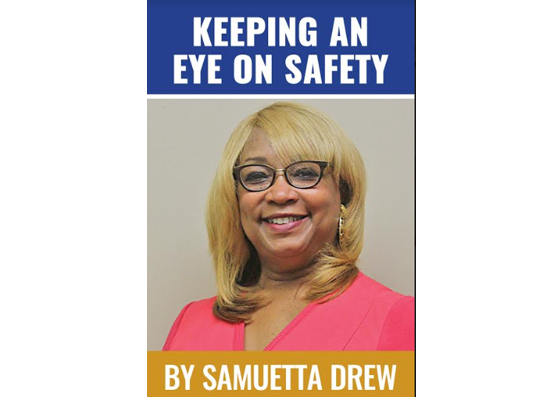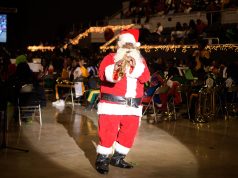By Samuetta Hill Drew
There are cold weather safety precautions we should all be aware of regardless of age, but seniors sometimes are more vulnerable to certain safety threats than others. Part two will review some of these potential safety threats and safety tips to remedy them.
It’s important to stay warm indoors and outdoors during frigid temperatures. Some seniors worry about high heating cost. One tip they can follow is to set the thermostat to a comfortable temperature and close the vents and doors to rooms not frequently used to conserve heat. This keeps the heat in those living areas of their home.
Studies have shown repeatedly there are more house fires during winter months due to alternative heating measures. People 65 and older are three times more likely to die or be injured in a home fire. Check to make sure the space heater meets all certification safety standards – such as those with a UL mark, ETF label from Interlock or CSA International. It should also have a shutoff feature where the space heater will automatically shut off when it overheats. Naturally, it should never be placed close by curtains, bedspreads, or other items which may easily catch fire.
If a fireplace is being used as an alternate heating source, it’s important to have a large screen in front of it to prevent sparks from landing on the rug, carpet or things that could potentially catch fire.
Another safety tip is dressing warmly during both day and night, often in layers. Long underwear or flannel bedding can help at night when your body temperature can dip by one or two degrees.
Many seniors remain active. Some enjoy going outside to exercise with a brisk walk or to run errands. Dressing properly with warm clothing is essential. Wearing high-traction shoes or boots is a must to help prevent slips or falls in icy conditions. Broken hips are a common injury for the elderly which can lead to other health complications.
They should only walk on clear paths. Adding salt, sand or cat litter to a driveway or sidewalk can add an extra layer of slip-free protection. It’s recommended a family member or friend do this for the senior. Another recommendation is that a senior hire someone rather than doing it themselves. This can be a strenuous activity and place undue stress on the heart.
If the senior insists on venturing outside to exercise, then create a small safety kit for them to carry when outside. This kit should include – a bottle of water, medications, hand warmers, a whistle and a flashlight.
Another safety tip for seniors during cold weather is to protect their hearing aids. These or other assistive listening devices need to be protected from extreme temperature and moisture in the winter.
If the cold weather leads to possible power outages, then the senior needs to be prepared with a backup generator to access heat. Also, plenty of blankets to bundle up with and a stockpile of food. You should check with your senior family member or friend to make sure they are aware of the predicted weather, its length and their preparedness.
Smart homes allow family members or friends to keep watch over love ones. There are technology companies who will assist in turning an aging parent’s home into a smart home. Voice activated personal assistants like Siri, Alexa and Cortana can also help.
Lastly, help to Keep an Eye on Safety for seniors also includes preventing flu and colds. Frigid temperatures and less sunlight can weaken the immune systems making it easier to contract viral infections such as the flu or a cold. It’s best they consult with their physician to make sure they had the necessary screenings and vaccinations along with the flu shot. These tips are a great beginning to helping seniors remain safe during cold winter months.




